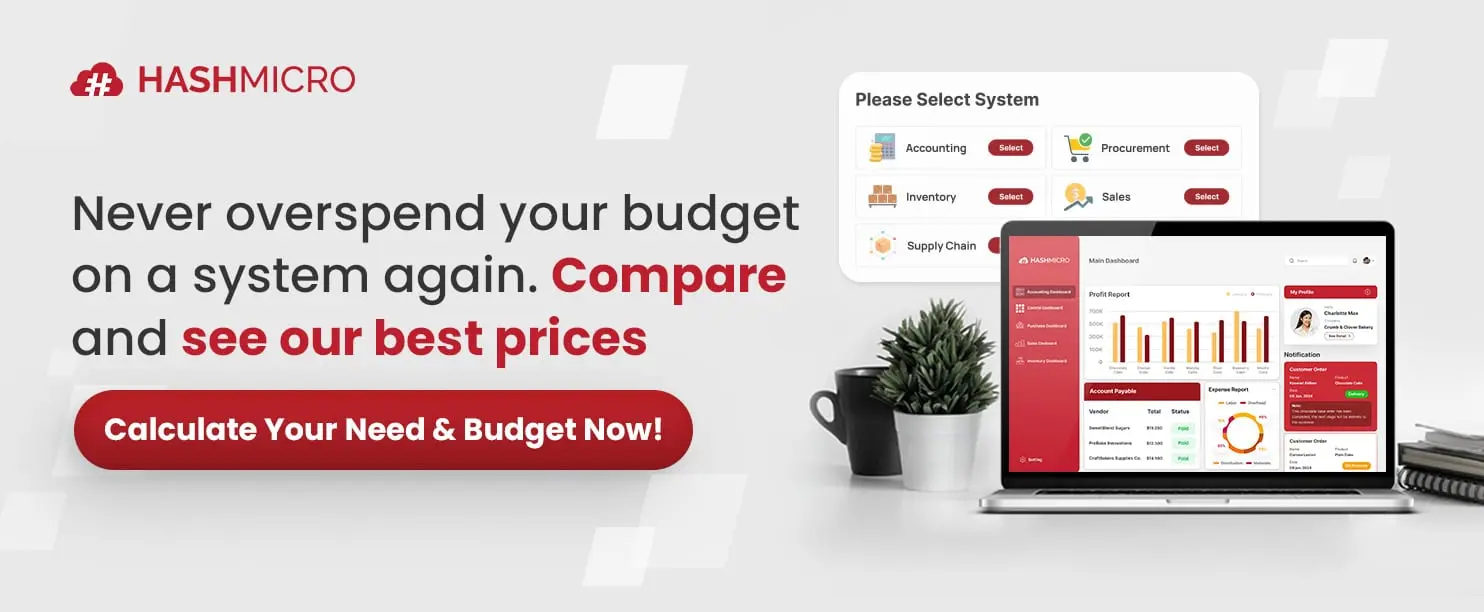With rising challenges and dynamics in food distribution, businesses are turning to food distribution software to streamline operations, improve accuracy, and enhance efficiency.
Selecting the right software helps streamline inventory, improve transparency across the supply chain, and support smarter, data-driven decisions. It also promotes better coordination between suppliers, warehouses, and retailers.
Explore the 15 best food distribution software solutions in Malaysia, each designed to meet the specific needs of food businesses with practical insights to help you choose the perfect system for your operations.
Key Takeaways
|
What is Food Distribution Software?
Food distribution software is a specialized digital solution designed to help food suppliers, distributors, and wholesalers manage the entire supply chain efficiently. It streamlines core processes, including order management, inventory tracking, and warehouse control.
With features tailored to the unique demands of food handling, such as expiry tracking, batch control, and temperature-sensitive inventory, food products are delivered safely, on time, and in compliance with regulations.
By utilizing food distribution software, businesses can enhance accuracy, minimize waste, and respond more quickly to customer demands. The system also supports real-time data access and automation, enabling companies to make informed operational decisions.
Benefits of Using Food Distribution Software
Food distribution software plays a key role in helping businesses thrive in the increasingly complex food supply chain industry. Below are some benefits your team can gain from using this type of software:
1. Detailed inventory control
Businesses can gain a comprehensive view of stock levels, locations, and movement in real-time, enabling better decision-making, minimizing stockouts or overstocking, and improving overall efficiency across the entire supply chain.
2. Improved workflow efficiency
Food distribution software automates time-consuming tasks, such as stock tracking, route planning, and invoicing. It significantly reduces manual work and ensures the timely, accurate execution of distribution processes.
3. Compliance with industry standards
The software often includes modules that support traceability, food safety protocols, and regulatory compliance. It helps ensure that products meet health regulations and reduces the risks associated with food recalls or audits.
4. Optimized resource allocation
By enabling better forecasting and inventory management, the software minimizes waste and overstocking. It also facilitates the efficient use of transportation and cross-dock warehouse resources, resulting in cost savings and more sustainable operations.
15 Best Food Distribution Software in Malaysia
We’ve compiled a list of 15 top-rated food distribution software solutions specifically designed to meet the unique needs of food suppliers, distributors, and wholesalers.
Each system offers distinct features and potential drawbacks, enabling you to determine which platform best aligns with your operational needs.
1. HashMicro
HashMicro’s Food Distribution Software offers a comprehensive suite of tools designed to optimize distribution workflows and improve operational efficiency in the food supply industry.
Tailored for food distributors in Malaysia and beyond, this solution supports core operations, including inventory tracking, procurement, sales, and financial management. It helps businesses maintain optimal stock levels and improve supplier coordination.
With a client base of over 2,000 organizations, including prominent names like McDonald’s, HashMicro continues to solidify its presence as a trusted software provider in the food distribution sector.
Here are the key features of HashMicro’s Food Distribution Software:
- Customer Relationship Management: Manage customer information and order history to improve service quality and foster long-term relationships.
- Billing and Finance Management: Streamline invoicing and payment processes with customizable billing tools tailored to food distribution operations.
- Procurement Automation: Automate purchasing decisions based on demand forecasts and inventory levels to ensure timely restocking of perishable goods.
- Inventory Management: Track stock in real-time across warehouses, monitor expiration dates, and manage batch numbers to maintain food safety and reduce waste.
- Bank Reconciliation: Reconcile payments from high-volume B2B food deliveries by syncing accounts and bank records in one system.
- Real-Time Analytics: Monitor sales trends, inventory turnover, and delivery performance in real time to reduce spoilage and improve margins.
| Pros | Cons |
|
|
After discovering the main features of HashMicro’s Food Distribution Software, you may be curious about how it can address your business’s specific distribution challenges. To learn more, please feel free to request a complimentary demo or click the banner below to explore our detailed pricing options.
2. Fishbowl
Fishbowl provides distribution barcode software for food distribution businesses, offering features that enable real-time stock tracking, streamline warehouse activities, and facilitate efficient supply workflows, all within inventory, warehouse, and operations management.
Its key functions include tracking food items and assets, managing multiple storage locations, barcode scanning, automated order handling, labour cost tracking, material planning, and product bundling.
| Pros | Cons |
|
|
3. ERPAG
ERPAG is a cloud-based ERP solution designed to streamline operations for small to mid-sized businesses, including those in the food distribution sector. It supports real-time inventory and order management, enabling distributors to track stock levels accurately.
Key features include automated reordering, barcode inventory tracking, multi-warehouse management, and support for multiple units of measure. ERPAG also offers integrated invoicing and purchasing tools, label printing, and manufacturing support.
| Pros | Cons |
|
|
4. Epos Now
Epos Now’s POS system, originally designed for restaurants, also offers valuable features that support food distribution operations. Its inventory management tools make it easy to track both dry and perishable goods.
The platform also offers real-time sales reporting and integration with major ordering platforms. With Epos Now, distributors can track product movement, automate key processes, and respond quickly to shifting demand and evolving customer needs.
| Pros | Cons |
|
|
5. Gofrugal
Gofrugal has been delivering tailored food service distribution software solutions for the food distribution industry. With a strong focus on automation, the company offers a suite of tools designed to streamline inventory tracking, order management, and logistics.
Gofrugal helps distributors improve accuracy, reduce waste, and deliver a better customer experience. Its cloud-based and mobile-ready systems are especially beneficial for food distributors needing real-time visibility and control across multiple locations.
| Pros | Cons |
|
|
6. Blue Cart
BlueChart Wholesale Distribution Software offers a comprehensive, all-in-one digital solution designed to streamline complex supply chain processes in the food industry. The platform provides automated tools that support accuracy and ensure timely distribution.
BlueChart empowers food distributors to manage operations more efficiently. Its cloud-based infrastructure and mobile accessibility allow teams to oversee real-time inventory, enhancing coordination between warehouses and sales teams.
| Pros | Cons |
|
|
7. Spoonfed
Spoonfed is a user-friendly, cloud-based food distribution and order management solution designed for catering operations in meetings and events. It enhances efficiency with features such as digital customer ordering and production lists.
By streamlining both front-of-house and back-of-house operations, Spoonfed enables food distribution businesses to work more efficiently, serve customers more effectively, and enhance overall operational coordination.
| Pros | Cons |
|
|
8. Food Connex
Food Connex is a cloud-based solution designed to help food distributors and processors boost efficiency and profitability. The platform simplifies day-to-day operations, enhances customer service, and minimizes errors that can lead to losses.
Food Connex supports accurate order input, fulfilment, pricing, invoicing, purchasing, scale operations, barcode and label creation, lot tracking, cost monitoring, and recall traceability, making it a reliable tool for managing food distribution workflows.
9. RoutiGo
RoutiGo is a SaaS-based platform tailored to optimize route planning for delivery-focused businesses, including those in the food distribution sector. RoutiGo offers scalability and seamless integration into complex logistics environments.
The platform helps food distributors streamline last-mile delivery with features like automated route planning, real-time driver tracking, and customer notifications via email or SMS.
| Pros | Cons |
|
|
10. Tag My Order
Tag My Order offers a customizable food delivery management platform that simplifies route planning and order tracking for food distribution businesses.
Key features of Tag My Order for food distribution include real-time route optimization, automated delivery notifications, dynamic driver assignment, and sharing the estimated time of arrival with customers.
| Pros | Cons |
|
|
11. Detrack
Detrack is a delivery management software designed to help food and beverage businesses streamline their delivery operations. It enables users to schedule deliveries, track delivery progress, and manage customer data effectively.
Detrack offers useful features, including customizable delivery zones and detailed reporting tools. These functions enable companies to optimize their delivery routes, analyze performance, and enhance overall service quality.
| Pros | Cons |
|
|
12. Infor Distribution SX.e
Infor Distribution SX.e is a robust enterprise solution tailored for the wholesale distribution industry, offering a seamless blend of innovation and core business functionality. The platform enables companies to achieve efficiency and inventory management.
This solution enables businesses to expand their service offerings, enhance workforce productivity, and streamline operations. It also improves customer experiences through smarter engagement tools and enhances performance by simplifying daily processes.
| Pros | Cons |
|
|
13. Routeique
The Routeique is an end-to-end distribution platform that offers a comprehensive solution to help food service operations reduce both costs and time.
Equipped with cutting-edge route optimization and cold chain compliance features, Routeique guarantees timely deliveries while maintaining the optimal condition of your products.
| Pros | Cons |
|
|
14. Accolent ERP
Accolent ERP is a cloud-based business management system designed specifically for food service distributors. Backed by four decades of industry expertise, this web-architected ERP solution delivers seamless end-to-end functionality tailored for the food distribution sector.
It features advanced capabilities, such as CatchWeight inventory, which enables users to capture product data, including weight, lot number, and expiration date, through a single, customizable barcode scan.
| Pros | Cons |
|
|
15. Janis
Janis merges the capabilities of OMS, WMS, and TMS into a robust Distributed Order Management system, focusing on sustainability and operational efficiency. It enables businesses to achieve seamless synchronization across order processing, warehouse coordination, and delivery.
| Pros | Cons |
|
|
Choosing the Right Software for Your Food Distribution Business
When choosing food distributor software, it’s crucial to evaluate factors that impact functionality, operational compatibility, and user-friendliness. Using the incorrect food distribution management system can result in inventory errors and delayed deliveries.
To help you select the right software for your distribution business, consider the following:
- Understand your distribution workflow: Assess the complexity of your inventory, delivery schedules, and order volumes to optimize your operations. Ensure the software aligns with your team’s workflow and supports key logistics processes.
- Scalability: Search for a system that can grow with your operations, whether you’re expanding into new regions, handling more SKUs, or managing more partners.
- Integration capabilities: Look for compatibility with tools such as warehouse management systems, accounting platforms, and transportation tracking tools to maintain seamless operations.
- Customizability: Select software that tailors to your specific business needs, such as expiration tracking, order frequency, or vendor-specific pricing.
- Ease of use: A straightforward interface ensures faster adoption and smoother day-to-day operations across departments.
- Budget fit: Weigh the long-term benefits of the software against its pricing model to ensure it aligns with your financial goals.
- Data protection: Verify that the software has strong security protocols to safeguard business-critical and customer information.
- Responsive support: Reliable customer service is crucial, especially when time-sensitive deliveries are involved.
- Mobile accessibility: Access to real-time data via smartphones or tablets enables on-the-go management and quicker decision-making.
Conclusion
Selecting the right food distributor software is crucial for businesses aiming to optimize logistics and maintain financial clarity throughout the supply chain. The right system helps simplify complex distribution workflows and improve the accuracy of orders.
Solutions like HashMicro’s Food Distributor Software provide an integrated suite of features designed for modern food distribution operations. With various features, this cloud-based platform ensures operational transparency.
Request a free demo today to discover how HashMicro’s solution can streamline your distribution process, strengthen supply chain efficiency, and improve decision-making across your business.
Frequently Asked Questions
-
What is the importance of disturbing food?
Free food distribution programs help combat hunger by providing nutritious meals and reducing the risk of malnutrition and health issues.
-
What does a food distributor do?
Food distributors help brands get their names on the shelves and offer logistical and storage services. They hold large quantities of stock and transport goods to customers, sometimes across considerable distances.
-
What are the problems with food distribution?
While problems related to food distribution, including poor storage, transportation, and policies, are obvious, distribution is also significantly impacted by supply-and-demand considerations, such that separating supply and scarcity from distribution creates a false dichotomy.










































